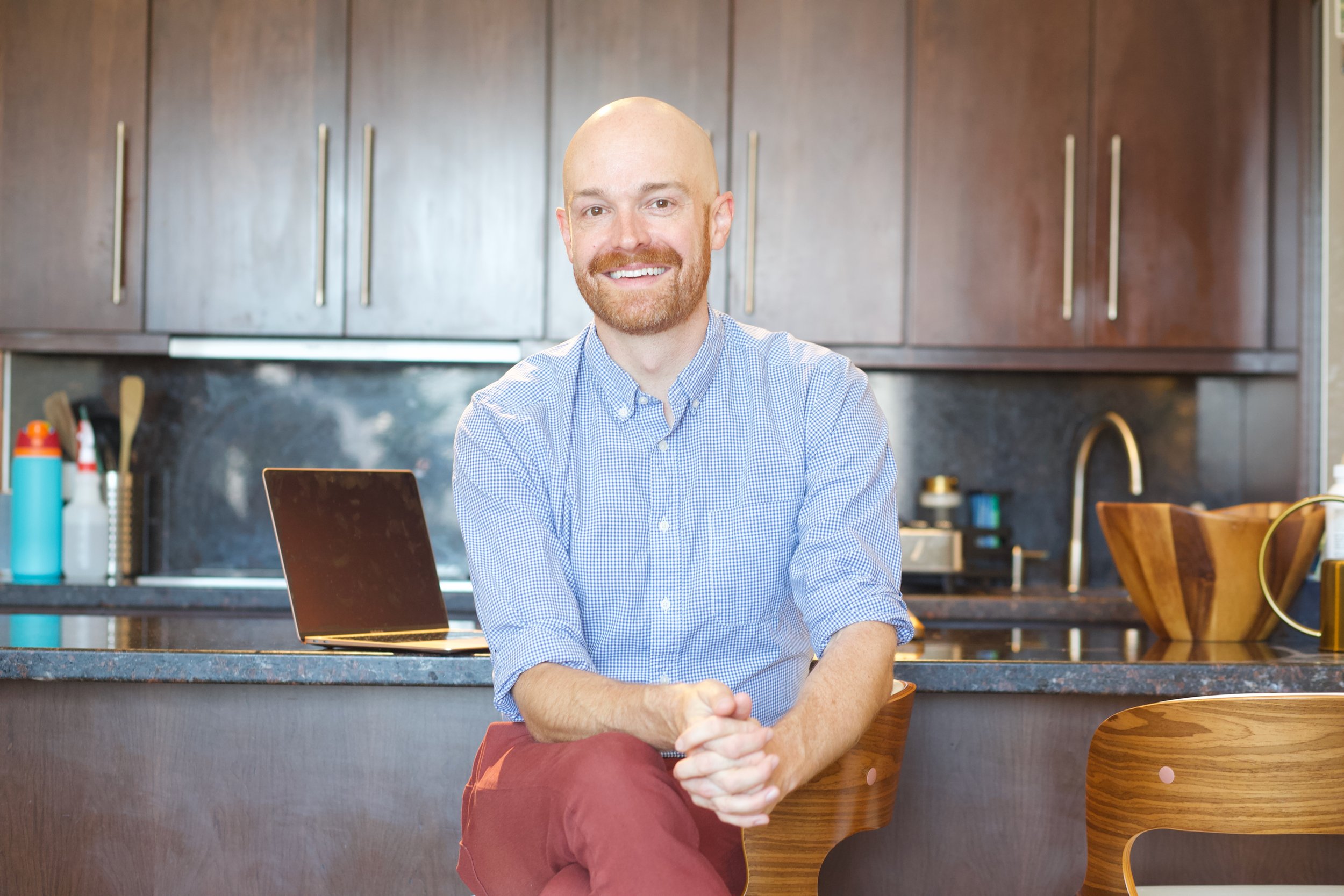Let’s get to work.
I offer individual therapy to adults of all ages and specialize in working with folks who identify as LGBTQ+.
Some common themes that I specialize in treating:
Anxiety, trauma, abuse, substance use, addictive behaviors, and grief or loss.
I am also kink and sex-positive and enjoy working with creatives and artists and folks with body image issues, medical trauma, or chronic illness.

—
My approach to therapy
—
I use an integrated combination of evidence-based approaches tailored to your needs and goals.
My work draws from relational psychodynamic therapy, Acceptance and Commitment Therapy (ACT), Internal Family Systems (IFS), and Motivational Interviewing.
I start from the belief that we are all born curious, creative, compassionate, and connected — both to ourselves and to others. If you’re feeling stuck, numb, disconnected, or overwhelmed, that doesn’t mean something is wrong with you. It just means those qualities have been buried under years of stress, shame, or survival.
Whatever the theory, the heart of my work is relational. We’ll pay close attention to your relationships with others, with your emotions, and with yourself, in the past and in the present. Together, we’ll uncover the good reasons you learned to relate to the world the way you do and then gently shift them, experimenting with new ways of showing up that feel more aligned, empowered, and free.
My approach is always trauma-informed, culturally accountable, queer-affirming, collaborative, and strengths-based. Therapy with me is not about pathologizing who you are, it’s about reconnecting you with the parts of yourself that have always known how to grow.
The clients I work best with tend to have a few things in common:
They’re tired of feeling stuck (in self-doubt, burnout, shame, or old patterns) and feel ready to give therapy an honest shot. They don’t need to be totally convinced it’ll work, but they’re willing to show up with curiosity, consistency, and some willingness to try something different.
They bring their questions, contradictions, and confusions into session. They want to understand themselves, their inner world, their relationships, and the parts of them that feel hidden or misunderstood.
Many of my clients grew up in religious or conservative environments that taught them to be selfless, perfect, or invisible. Now, they want to reconnect with the parts of themselves that feel more alive, creative, honest, and free. They might still be spiritual, or hoping to find a place for it in their life again, but they want a relationship with themselves that’s rooted in something kinder.

—
Same underlying problem, different points in life.
—
Although shame, self punishment, and trauma tend to be the common experiences, how they present themselves may differ depending on your phase of life. Expand the sections below to learn more.
-
If you’re freshly out of the family or hometown you grew up in and in college for the first time or early in your career, you may be challenged in new ways that are shaking your confidence.
You may be experiencing existential dread, feeling depressed, unsure about the meaning of life, or that nothing feels worthwhile. Alternatively, you might be feeling highly worried and anxious in ways you’ve never felt before.
You may be struggling to have a sense of who you are and what you want, and find yourself either avoiding dating and friendships altogether, or repeatedly getting involved with people you know aren’t good for you.
One on one therapy can help you to reveal, explore, and experiment with new ways of relating to yourself and others so you can chart the best direction for yourself for the rest of your life. This is such a critical, exciting time for therapy and you will reap the rewards for decades to come.
-
You’ve managed to hold it together for a long time now, but as life becomes increasingly complex— or as you have avoided more and more of it—the feeling of stuckness (claustrophobic and cloying) has become more and more overwhelming.
You may have tried coping in healthy ways like meditation, yoga, and journalling, or in less helpful ways like substance use, shopping, and social media, but nothing seems to help.
Maybe you are starting to question whether your childhood was really “totally fine.” When you’re not avoiding thinking about your childhood altogether, you might not remember anything specifically traumatic, but you have an overall sense of unease, stress, and strain. Or maybe you have clear memories of abuse and trauma that haunt you.
One on one therapy can help you to finally make sense of the mystery of your thoughts, feelings, and behaviors, how they may have their roots in the past, and how to make lasting change.
-
It is never too late for therapy.
Older adults are more likely to deal with loneliness and isolation, especially these days in our increasingly technology-centric world.
You’ve also most likely experienced deep grief and loss: of loved ones, relationships, and parts of yourself—your career, your health, your sense of who you used to be.
No matter how old you are, or how stuck in your ways you may feel, exploring and experimenting with your relationship to your self, your emotions, and other people will enrich the many years to come and finally make sense of the years you’ve already lived.

—
What you can expect
—
Therapy isn’t about becoming someone else — it’s about clearing away and revealing who you’ve been the whole time.
Together, we’ll work to reconnect you with a deeper sense of your self: no longer stuck inches from the breaking point, but rather moving through, grounded, and clear.
You can expect to build stronger, loving relationships, soften your inner critic, and feel more at ease in your body and your life. This work takes effort — but it’s worth it, and we’ll make it fun.



